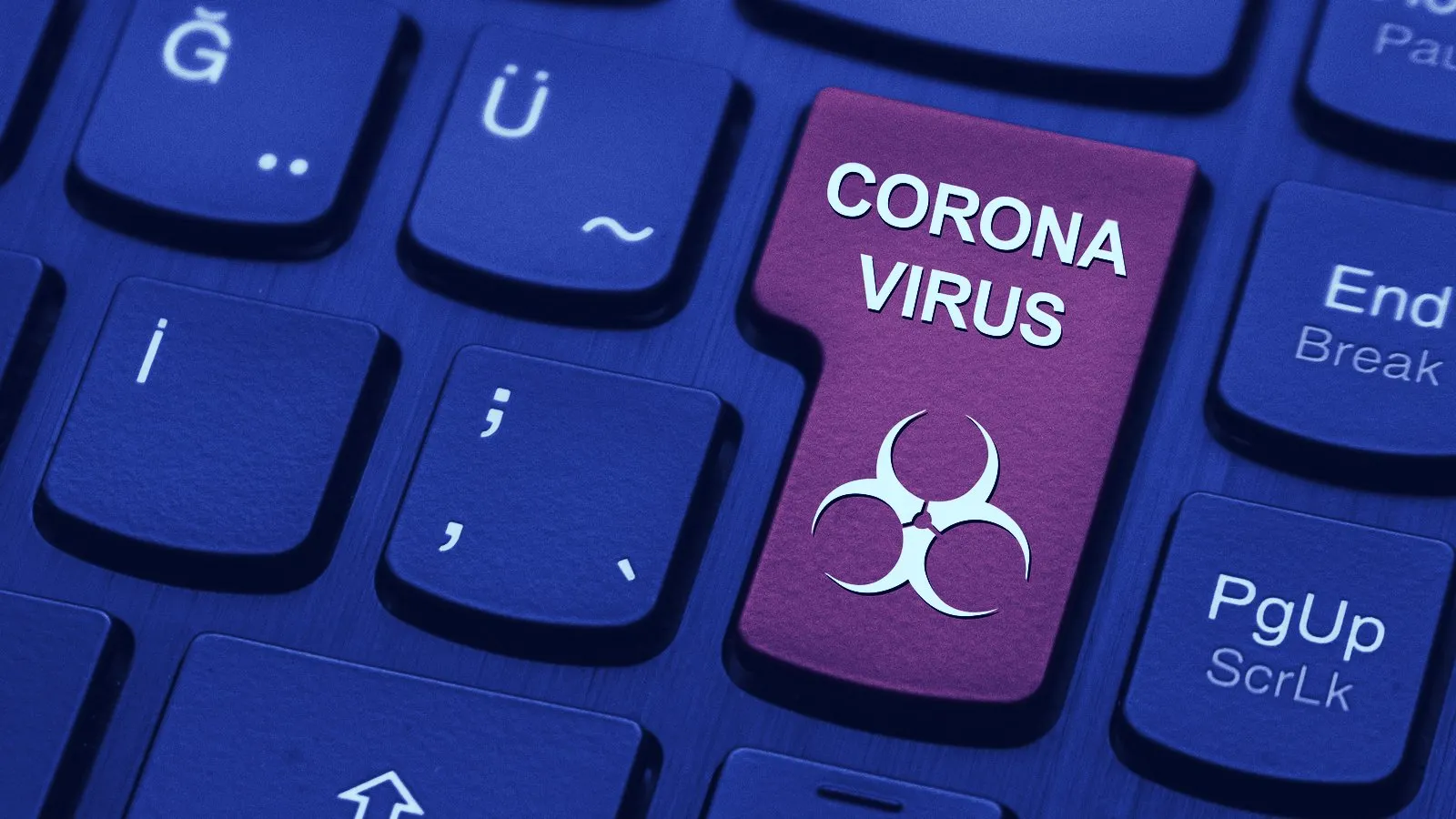In brief
- Hackers are taking advantage of the coronavirus to scam victims.
- Victims often don't have the same level of cybersecurity on their home computers.
- A number of scams have already surfaced.
The coronavirus has brought with it a host of pandemic-themed cyberattacks, reported Agence France-Presse, citing interviews with leading cybersecurity experts.
The influx of remote working caused by the pandemic makes many entirely reliant on computers for their livelihoods. Hackers have taken advantage, launching an “unprecedented volume of attacks to trick people into giving up credentials to attackers,” according to security researchers.
"We are seeing campaigns with message volumes up to hundreds of thousands which are leveraging this coronavirus,” said Sherrod DeGrippo, head of threat research for the security firm Proofpoint, according to AFP.

DeGrippo added that this is because people working at home don’t have access to the computer security systems they do at work.
She said that fraudsters and hackers will conjure up new tricks to exploit victims of the coronavirus. "I can see some attackers sending messages like, 'I'm in quarantine and need you to buy something for me,' or 'I need you to make this transfer of funds,'" she added.
DeGrippo’s fears are already a reality.
Phony coronavirus tracking applications are infecting victims’ computers with malware. One piece of malware—a coronavirus tracking map that draws data from Johns Hopkins University—steals personal information from victims’ computers and sells it on the dark web.
Another claims to expose social media accounts and delete files on mobile phones unless victims pay $100 in Bitcoin.
In other scams, fraudsters ask for Bitcoin payments or fake donations to the World Health Organization and the Center for Disease Control and Prevention, according to the National Fraud Intelligence Bureau (NFIB).
“They claim to be able to provide the recipient with a list of coronavirus infected people in their area,” the NFIB told The Guardian.
DeGrippo suggested keeping computers separate to avoid cross-contamination. “Keeping mom's and dad's computer for mom and dad is the right thing to do,” she said.
Of the new tricks, DeGrippo said: “It is taking humanity at its most vulnerable and trying to use that for financial gain."
If only the scammers had a conscience.

